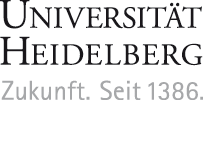A Marriage of True Minds
Knowledge transfer over breakfast: Rohini and Thomas Kuner are university professors in Heidelberg and a married couple
“To get a professorship is lucky, but to receive two appointments within the same week feels like winning the lottery.” With these words Prof. Thomas Kuner recalls the days that changed both his life and that of his wife. For just over six months now, Rohini and Thomas Kuner have been professors at the Medical Faculty in Heidelberg.
Indian-born Rohini Kuner (37) studied pharmaceutical technology in Bombay and obtained her doctorate at the University of Iowa in 1994. It was at the Centre for Molecular Biology in Heidelberg, where she worked as a post-doc, that she met Thomas Kuner (41), who studied at the Medical Faculty of the University of Heidelberg and later wrote his dissertation on the structure and function of ion channels under the supervision of Prof. Dr. Peter H. Seeburg.
They were notified of their appointments as professors in Heidelberg at a time when both were looking for new roadmaps for their professional careers. Both the Emmy-Noether Program of the German Research Foundation (DFG), within which Rohini Kuner was conducting her research at the Institute of Pharmacology, and Thomas Kuner’s contract with the Max Planck Institute for Medical Research were just coming to an end.
“We were already contemplating moving to Australia or to the USA. But we are Europeans at heart,” Thomas Kuner explains. And naturally, they had to weigh the academic opportunities against family considerations. The Kuners have a son and another addition to the family is on the way. That is why Rohini Kuner had declined an appointment at the University of Marburg.
“It is absolutely essential that the scientific community does not lose educated young women who have just had a child,” the two scientists insist. The Kuners have opted for a combination of day-care and au pair. Of course, the parents often try to get home earlier so as to spend some time with their son – and to continue their work at home.
Their latest research results demonstrate that cooperation outside the laboratory can bear fruit and that academic discussions at the breakfast table can definitely bring successful projects to life. The proof is to be found in their latest joint article in the “Journal of Neuroscience”. An excellent example of knowledge transfer indeed!
At the Institute of Anatomy and Cellular Biology, Thomas Kuner researches the molecular basis of synaptic transmissions. His chief interest is investigating how the brain works in order to treat physical and neurological disorders like schizophrenia or autism with specifically designed drugs that act at the synapses.
Rohini Kuner’s main research area at the Institute of Pharmacology is chronic pain. She is currently investigating how a function originally designed to protect the body can develop into a chronic disorder through the intervention of diverse factors such as tissue damage, tumours or viral infections. Her research involves the exploration of molecular mechanisms that play a role in chronic pain disorders. Recently, Rohini Kuner received the 100,000-euro Chica and Heinz Schaller Research Award for her work in this area.
The fact that both of them were appointed professors was very important, says Thomas Kuner, because for ambitious researches like themselves the insecurity of their previous situation was quite a burden on their minds. Both of them greatly appreciate the scientific community in Heidelberg: “We have access to exceptional resources,” Thomas Kuner emphasises. “With these appointments, my wife and I can continue the projects that we have been working on for a long time.”
The two appointments were made independently of each other. “But without the advocacy of the Dean and the local support we received from our colleagues,” the Kuners are sure, “it would not have been possible for both of us to remain in Heidelberg. But when good academics can be retained, everybody wins.” And so does the University, which avowedly attaches great strategic importance to supporting academic couples – and families.
Also by Prof. Rohini Kuner: “The Two Faces of Pain” in the University of Heidelberg’s research journal “Ruperto Carola” 3/06 (in German) http://www.uni-heidelberg.de/presse/ruca/ruca06-3/janu.html
Please address any inquiries to
Dr. Michael Schwarz
Public Information Officer
University of Heidelberg
phone: 06221/542310, fax: 542317
michael.schwarz@rektorat.uni-heidelberg.de
http://www.uni-heidelberg.de/presse
Irene Thewalt
phone: 06221/542310, fax: 542317
presse@rektorat.uni-heidelberg.de


